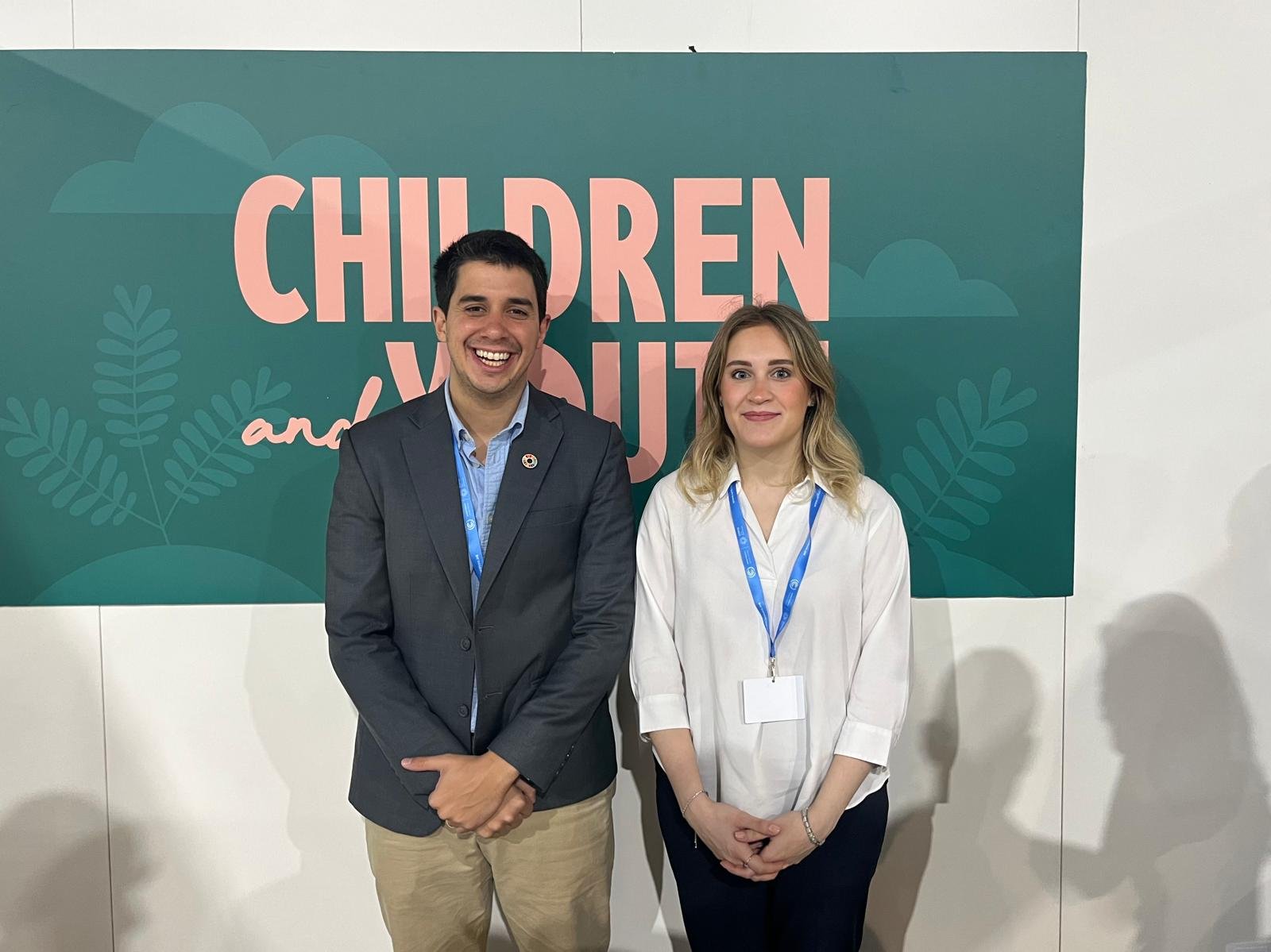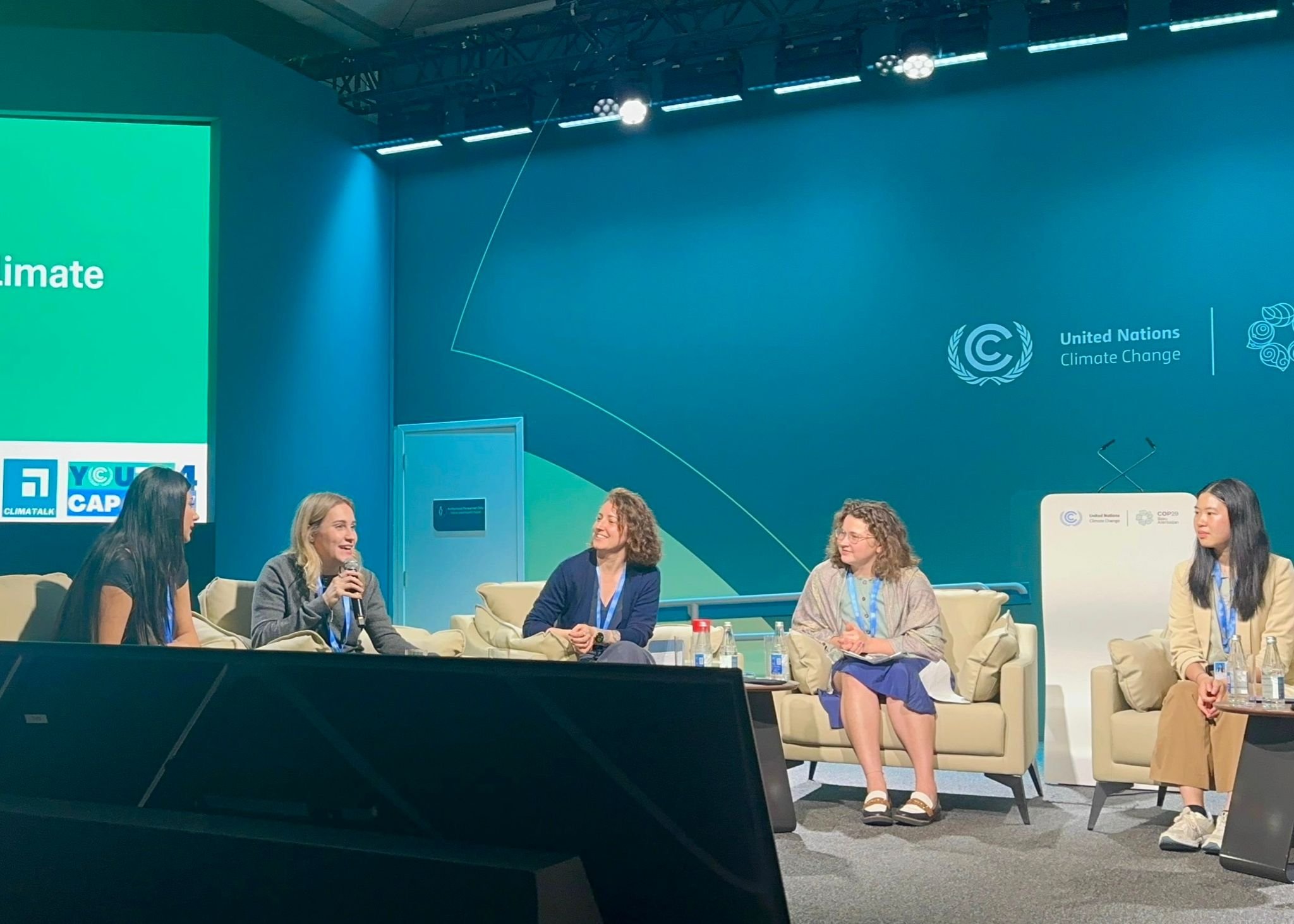‘Young people have the most hope’: Goksu Danaci on representing UCL at COP29
Goksu at the conference. Image Courtesy: Goksu Danaci.
Following two weeks of negotiations, the United Nations Climate Change Conference 2024, or COP29, came to a close on 24 November. The conference, held in Azerbaijan, brought together nearly 200 countries with the goal of discussing strategies to reduce the impacts of climate change.
Goksu Danaci, the president of the Students’ Union, attended the conference on behalf of UCL, representing the views and concerns of the student body. From inspiring talks to generational divides, Goksu spoke to us about her experience as a young actor at COP29, and how students passionate about climate action can get involved too.
Talk us through an average day at the COP 29 conference.
Most events I wanted to attend took place in the afternoon, so I’d start the day by just observing the environment. The conference was split into the Blue Zone and the Green Zone. The Green was a bit more commercial, while the Blue was focused on the different country delegates. I’d collect my pass for the day and wander around the different pavilions across both zones. It was just like a careers fair, just with countries instead of employers! I have a background in diplomacy so I’ve been to a few party conferences, but this was my first time in this UN environment. There must have been at least 60,000 people there so it was all pretty impressive.
What were the people like at the conference?
During the events, I would speak to as many people as possible and learn about their different perspectives. I met other youth delegates from countries across the world, like Azerbaijan, Singapore, Australia, Spain. All the young people were truly amazing and had incredible stories to share. There was a lovely group of UCL academics and students who I would catch up with between events too.
What was the general mood at the conference?
I think students and young people had the most hope there, even though the future is going to be in our hands. The older people there at times seemed much more worried. They know that they need to get together, because otherwise the environment has no chance of improving. But at the same time they feel a bit hopeless. Thankfully, lots of people were very keen on listening to the youth voice, and I guess what gave me hope was meeting the adults who were interested in hearing what we had to say.
Who was the most inspiring young person you met?
I met an incredible student from Ghana at a dinner one night. He was an activist, who came to the conference with a charity as part of his country’s delegation. He told me about the problem of desertification in Ghana, which is causing many to be displaced from their homes. Their lives are being completely changed because they can’t access water anymore due to climate change. He shared with me stories about his family and community, and I think that was why he inspired me the most. He is living through the devastating effects of climate change right now, yet he was still trying to do something. He still had hope.
What was an important idea which came up that you felt passionate about?
The connection between mitigation and adaptation in a climate sense. There was much discussion about how we need to prepare to solve some future climate change issues, but we also need to adapt to solve the present ones. Both are as important to think about, because we can’t just prepare all the time. We have to adapt to what the reality is too.
How do you feel students can make their voices heard?
They can do what I do every day, just be direct. Obviously, go with the flow and always be respectful. But if you're concerned about something, just voice it straight away, because most of the time people will want to listen.
Goksu speaking onstage at COP29. Image Courtesy: Goksu Danaci.
You had the opportunity to speak on stage at a youth event. How was that experience?
It was an interactive session, so I had the opportunity to ask some questions and join the discussion onstage. It was only for a few minutes but it was still super cool! I spoke about intergenerational climate equity, which is all about how resources should be distributed fairly across different generations. For example, I discussed how we are exhausting all our resources of water without thinking about the implications, and now we’re going to pass a much less privileged position onto our grandchildren.
What was the most inspiring talk you saw?
I loved the talk on sustainable finance, run by the sustainability department at the McKinsey consulting firm. The panellists were exploring the current and transition climate risks for investors, and while I must admit I don’t know much about the field, the way they explained it just made perfect sense. It was fascinating the way these speakers had dedicated their lives to changing certain banking practices, helping them become more sustainable and actually being able to influence investors into favouring climate-friendly initiatives.
You can try to solve some environmental concerns without money, but for most of it, you need investment if you really want to make a difference. People care so much about profit but the work of these speakers proved how climate-friendly initiatives can be more attractive to the investor. I guess what I found most inspiring was the power they had to convince the people who had the money that this is worth their attention and how they can change the system that the world is operating in.
How do UCL and the Union work together on climate issues?
UCL genuinely listens to me, but that’s because I listen to UCL as well. It's a two-way street regarding sustainability and I'm often in touch with them to collaborate on events. While we work differently, the main focus for both of us is trying to educate students. We are actually in the process of forming a new active bystander course, but this time with a focus on sustainability. The course is being developed with the help of an IOE department academic and we aim to share it on our page by September 2025.
What’s one piece of advice you would give to students looking to improve their sustainability efforts?
I think if students are really passionate about sustainability and climate change I would recommend really taking advantage of all the amazing resources at UCL. If you have any questions or if you want to run a project, you can reach out to academics who represented us at COP29. I think there were around 10 of them in total, and they’re all such friendly people and always happy to help. Many students who I spoke to at the sustainability forum before COP expressed concerns about greenwashing at UCL, but I really want to stress this is not the case. Both the university and union really want to engage with what matters to students, so there are lots of projects and opportunities to get involved with.
For more on their approach to climate change, read the Students' Union's Sustainability Strategy 2022-2025 mission statement.


